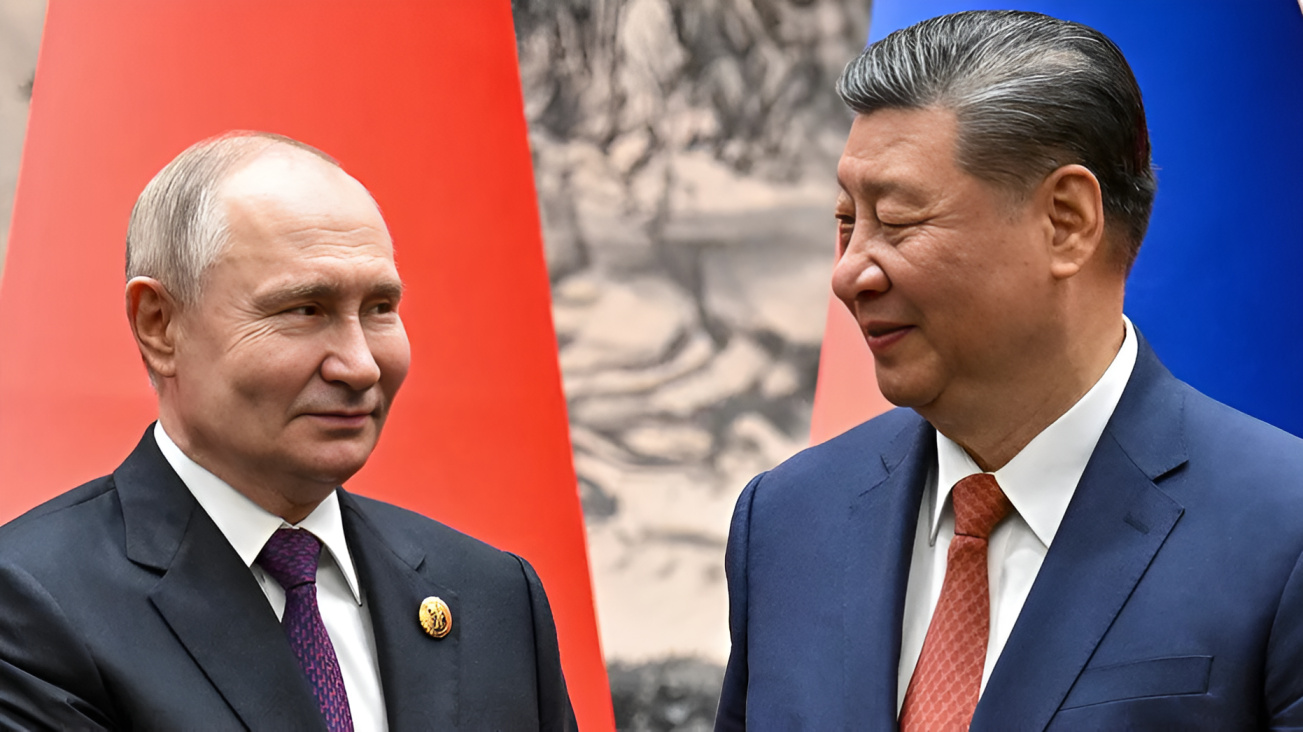Russian President Vladimir Putin has expressed his gratitude to Chinese leader Xi Jinping for joining in the 80th anniversary celebrations marking the Soviet Union's victory over Adolf Hitler in World War II.
Speaking at the event, Putin emphasized the shared commitment between Russia and China to fight modern-day "neo-Nazism."
Putin’s words underscored the significance of the anniversary, which is central to Russia's national identity, and highlighted the mutual historical connection between the two countries.
This year’s celebration, which commemorates the immense sacrifices made during the war, comes at a time when Russia’s invasion of Ukraine has stirred ongoing international debate.
Moscow has framed the war as a battle against contemporary Nazism, although Ukraine and its allies reject this comparison, labeling Russia's actions as an imperialistic invasion.
"The victory over fascism, achieved at the cost of enormous sacrifices, is of lasting significance," Putin stated.
"With our Chinese friends, we firmly stand guard over historical truth, protect the memory of the events of the war years, and counteract modern manifestations of neo-Nazism and militarism."
Xi, who attended the event as part of a larger diplomatic visit to Russia, echoed Putin’s sentiments, stressing the importance of the two countries working together.
He pointed to the shared position of both nations as permanent members of the United Nations Security Council, where they plan to promote global stability.
"We will jointly promote the correct view of the history of WWII, safeguard the authority and status of the UN, defend the rights and interests of China, Russia, and the vast majority of developing countries, and work together to promote an equal, orderly, multipolar, and inclusive economic globalization," Xi said.
The event, held at the Kremlin, saw Putin and Xi warmly greeting one another as "dear friends" before taking part in the formalities of the ceremony.
Xi's attendance was particularly notable, as he was one of more than two dozen foreign leaders visiting Moscow to commemorate the victory over Nazi Germany.
For Russia, the 80th anniversary offers Putin an opportunity to rally domestic support, invoking national pride rooted in the wartime sacrifices of the Soviet Union, which lost approximately 27 million people during the conflict, including many Ukrainians.
The anniversary also serves as a reminder of Russia’s role in the global fight against fascism, which continues to shape the country’s national identity and international diplomacy.
On the world stage, Putin seeks to position himself and China as defenders of the global order against what he and Xi have called “unilateralism and bullying,” which they attribute to the United States.
Xi’s participation in the event bolsters Russia’s image, especially as it continues to face economic pressure from the West, including sanctions imposed after Russia’s invasion of Ukraine.
Putin also announced a unilateral ceasefire in the ongoing war in Ukraine, beginning on May 9, coinciding with the anniversary.
However, Ukraine rejected this move, calling it a tactic by Putin to create the illusion of peace.
Despite the ceasefire, Ukraine reported continued assaults by Russian forces, including air strikes in the Sumy region of northern Ukraine.
The presence of foreign leaders in Moscow added an extra layer of significance to the event.
Notably, Chinese soldiers were set to participate in a military parade on Red Square, which is a central part of the commemorations.
This move sparked a response from Ukraine’s Foreign Ministry, urging countries to reconsider sending their military personnel, as it could conflict with their stance of neutrality in the ongoing war.
Meanwhile, Xi’s visit is expected to deepen the strategic partnership between Russia and China, which both countries have strengthened over the past few years.
In 2022, Russia and China signed a “no limits” partnership agreement just weeks before Russia's military intervention in Ukraine.
China, as Russia’s largest trading partner, has provided Moscow with much-needed economic support, particularly in the energy sector, helping Russia weather the impact of international sanctions.
Xi’s visit to Moscow also comes as China and Russia continue to face external pressure, including from the United States, over their growing alliance.
With the conflict in Ukraine and rising geopolitical tensions, the two countries remain determined to reinforce their strategic partnership, focusing on mutual interests in global governance and economic collaboration.
As for Ukraine, President Volodymyr Zelenskyy’s government has been exploring ways to bring Russia to the negotiating table, with discussions involving international partners, including the United States and the European Union.
Ukraine’s goal is to secure a long-term ceasefire and ultimately a peaceful resolution to the war, although achieving this remains an ongoing challenge amid continued military actions.
The stage is set for further diplomatic developments, as both Russia and China maintain their stance against Western influence and work to strengthen their own alliances.

